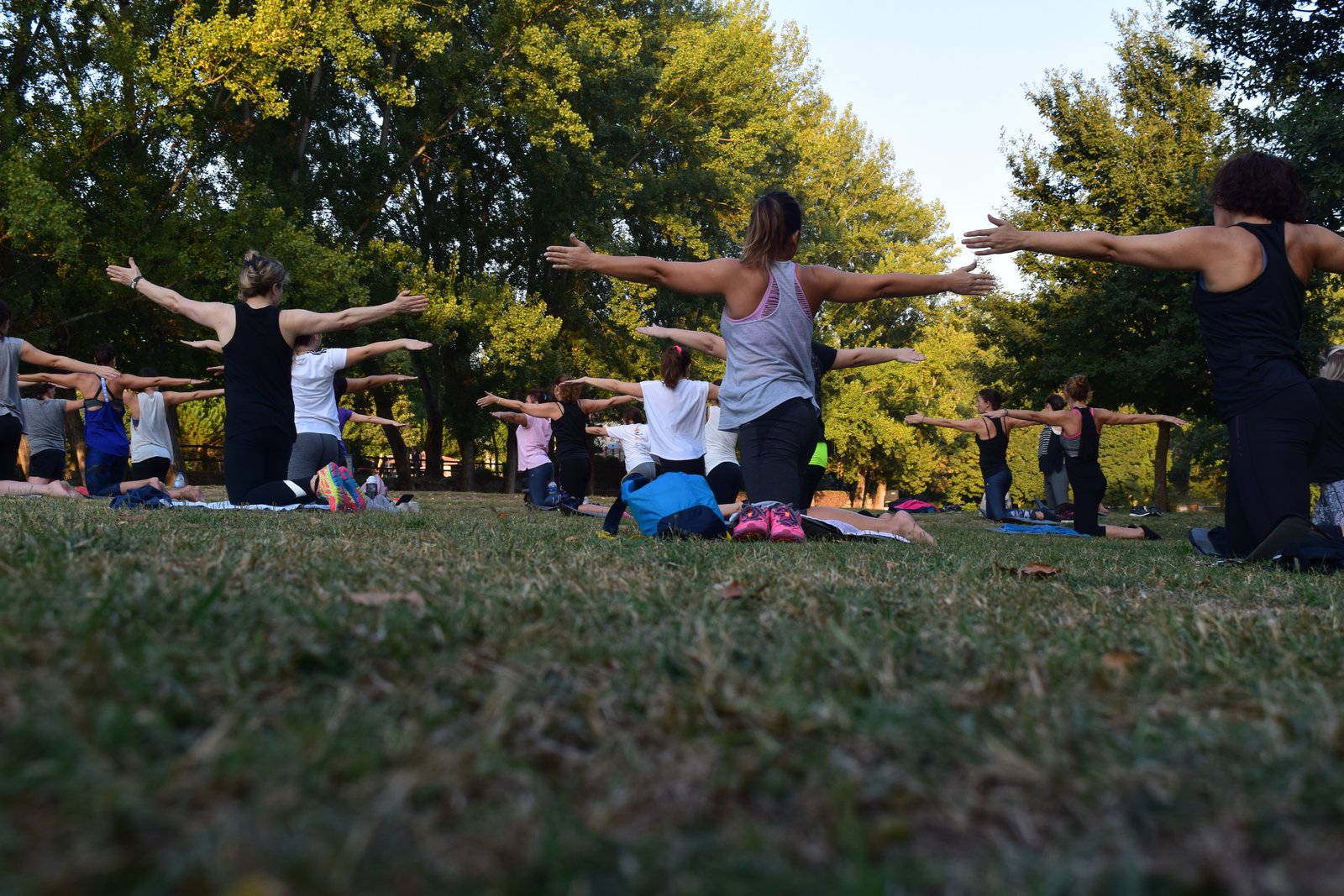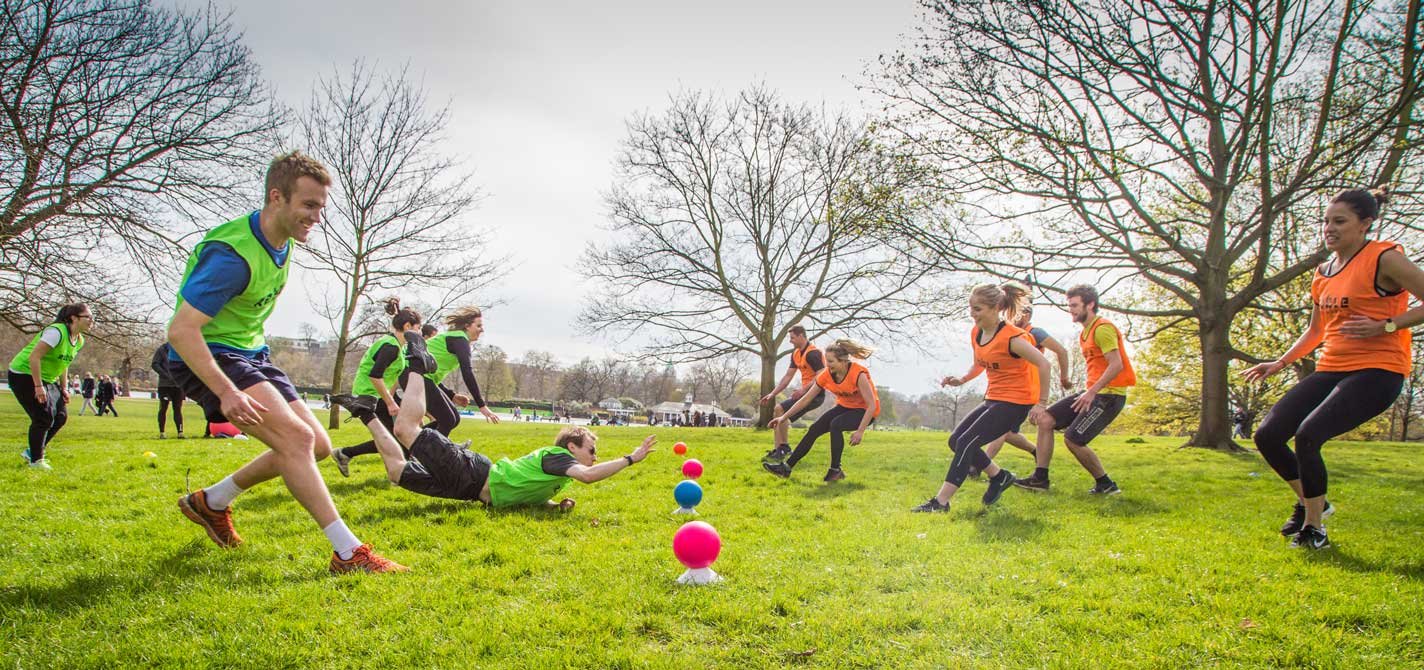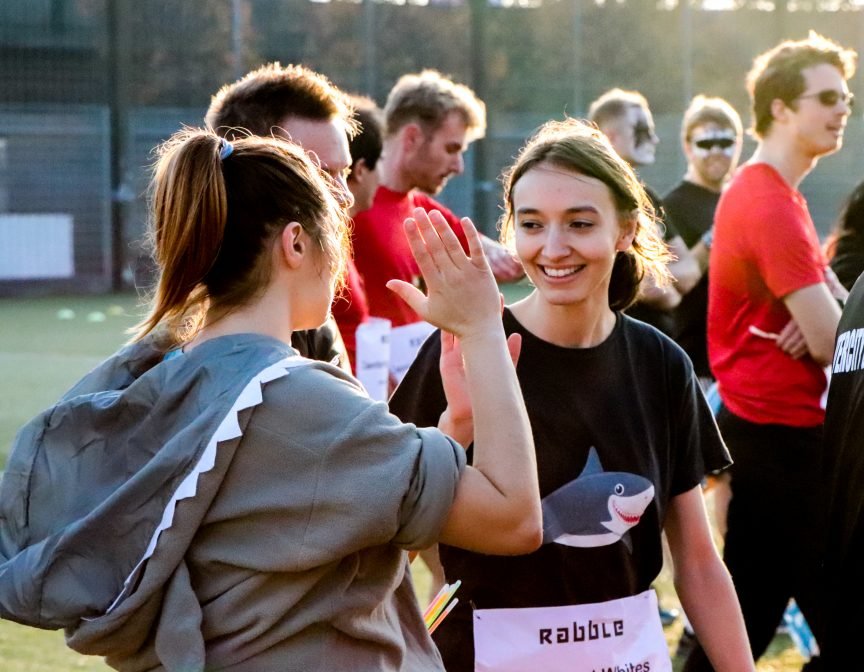It’s undisputed that exercise is good for mental health, to the extent that it’s been shown in some cases to be more effective than medication or other forms of treatment. But like all medication, of course there’s a hierarchy. Some types are better than others and it’s possible to overdose. So here’s a rundown of the best forms of exercise for mental health pulling on the science.
5. Outdoor Workouts

Green spaces are well known for causing relaxation and stress relieving benefits. Substantial evidence shows that green spaces increases psychological mood and decreases stress, which can be demonstrated physiologically by reducing heart rate, blood pressure, and sweat response. MIND commissioned two 2007 studies to show that outdoor exercise, or eco-therapy, could be as effective as antidepressants in treating mild depression! So working out in the great outdoors, surrounding yourself with green (or blue) scenery is even better than just working out at home or in a gym.
Try: outdoor bootcamps, running clubs, park run, social sports or outdoor yoga.
4. Aerobic Exercise

Aerobic exercise has been shown to be as good for the brain as it is for the body. Aerobic exercise is any kind of movement that raises the heart and breathing rate for a sustained period of time. Including running, swimming, cycling, walking, dancing and more. Aerobic workouts appear to help reduce levels of the body’s natural stress hormones, such as adrenaline and cortisol. Regular aerobic exercise, from as little as 1 hr a week, has also been shown to increase cognitive function in conditions such as dementia, patients undergoing chemotherapy and is great prevention against cognitive decline.
Try: Running, Swimming, Cycling, Dancing, Gardening, Walking etc
3. Mindful Workouts

Mindful workouts have been shown to reduce stress and anxiety levels during the workout. Being mindful is simply to be focusing all your attention on the present moment. Obviously, yoga and pilates are great forms of exercise for bringing the mind back to the body, but if you find your mind wandering, there are many other forms of exercise that might be better at preventing your mind from being distracted from the present moment. For example, climbing, team sports and boxing are great mindful activities because they force attention to be focused on the present moment. Otherwise, you’re at risk of falling from the wall, missing a play in the game or getting hit. These kinds of exercises prevent us from ruminating, where the mind mulls over your problems, which is possible when doing simple repetitive exercises like running, cycling. More complex forms of activity instead force us to problem solve and take a mental break from our everyday stresses.
Try: Yoga, Pilates, Climbing, Boxing, Local sports teams, Dance classes, Rabble
2. Social Workouts

There are great benefits to working out with other people including being more likely to keep to an exercise routine, more likely to work harder and more likely to enjoy the workout. Socialising is super important from a mental health perspective as socialising improves your mood, reduces your risk of cognitive disorders like dementia, and even helps you to live longer! Researchers found that those who socialised and exercised had much better mental health than those who did not. So try getting a friend to join you on your workout, run with you, or join a community sports club or team to make friends whilst being active. Making your exercise social is a super simple way to vastly improve your physical and mental health whilst simultaneously keeping you to your good habits for longer.
Try: Running clubs, Community sports teams, or connecting with others during your workout
1. Fun Workouts

Nielsen published a global exercise report which stated that fun was voted the most important element of the exercise experience, which was 50% more important for participants than convenience (2nd) and challenge (3rd). It will come as no surprise that those who enjoy their workouts get considerably greater mental health benefits than those who don’t. Cortisol activation response was much higher in those who enjoyed their workout, showing that it didn’t really matter what you did, the most important thing was whether you enjoyed it or not. And worse, if you feel guilty about not showing up to the gym, or you dread turning up, you’re having the opposite effect and adding more mental stress to your regime. If your workout feels like a chore, it’s time for a change! It was also discovered that laughter has similar mental health benefits to exercise – so if you can laugh whilst exercising you can maximise the positive impact! Try fun forms of exercise, like trampolining, Rabble which is a group games based workout that makes exercise so much fun that you forget you’re working out, dancing or even laughter clubs. Turns out that having fun is not just a nice to have, it’s a critical factor in staying healthy – so make sure you prioritise having fun!
Try: Rabble, Social sports Leagues, laughter clubs, dance based workouts
Any exercise is better than none, so even any additional steps you can squeeze in each day will have a positive impact. It’s been shown that moderate exercise is the best for stress relieving, so don’t feel you have to give it your all. And if you want to maximise the above, find a workout that combines all of the above factors, an outdoor, aerobic workout, that keeps you present in the moment, is social and enjoyable and you’ll be sure to keep your mental health in tip-top shape!
Interested in joining the fun?
Join a session near you
Find a gameBecome a Rabble instructor
Learn more